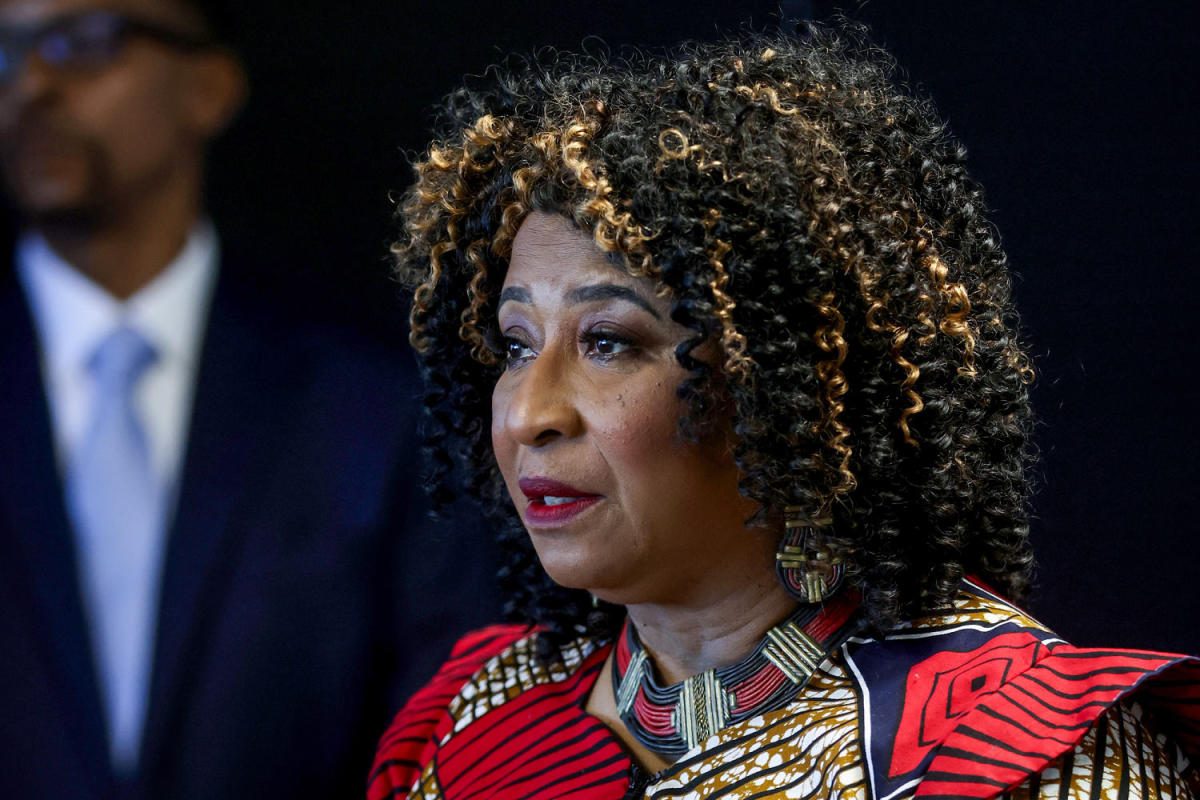Alameda County District Attorney Pamela Price said all of the California county’s death penalty cases are under review after a member of her office found evidence that prosecutors in a 30-year-old case had excluded Black and Jewish people from the jury.
“When you intentionally exclude people based on their race, their religion, their gender or any protected category, it violates the Constitution,” Price said at a news conference Monday. “The evidence that we have uncovered suggests plainly that many people did not receive a fair trial in Alameda County.”
Price said she was acting at the direction of U.S. District Judge Vince Chhabria, who is hearing an appeal for Ernest Dykes. Dykes was sentenced to death in 1995 after being convicted of the attempted murder of Bernice Clark and the murder of her 9-year-old grandson Lance Clark during an attempted robbery in 1993. He won a stay of execution in 2011 and has argued that he wasn’t afforded the opportunity of a fair trial.
While reviewing Dykes’ case file, a deputy district attorney from Price’s office found handwritten notes by prosecutors that appear to show they had intentionally excluded Jewish and Black female jurors from the jury pool, Price said in a statement, adding that the notes were promptly disclosed to the defense and Chhabria.
In an order filed Monday, Chhabria said Price’s office, “consistent with its legal and ethical obligations,” had shown him and Dykes’ attorneys notes from jury selection from the prosecutors at Dykes’ trial.
“These notes — especially when considered in conjunction with evidence presented in other cases — constitute strong evidence that, in prior decades, prosecutors from the office were engaged in a pattern of serious misconduct, automatically excluding Jewish and African American jurors in death penalty cases,” Chhabria wrote in the order.
Chhabria has directed Price to review all of the county’s death penalty cases for prosecutorial misconduct. Price said Monday that 35 cases had been identified and are under review.
Price’s office declined a request for an interview Tuesday.
She said at the news conference that other cases may have also been implicated and that it would take a long time for each case to be reviewed.
“We are looking at cases that go potentially as far back as 1977,” she said.
The potential misconduct may have involved multiple prosecutors over those decades, she said.
“We have notes made by prosecutors in some of the cases, which indicates that Jewish jurors were being identified as Jewish and that Black people were being identified as Black and that they did not end up on the jury,” she said. “And that has occurred in a number of cases.”
Price said she also has transcripts of how some jurors were questioned.
Prosecutors and defense lawyers are allowed to strike prospective jurors without giving a reason but are barred from doing so because of ethnicity, gender, race or religion.
Price, a former civil rights lawyer, took office in 2023. As part of her campaign, she pledged not to seek the death penalty. She is facing a recall election. Her critics have accused her of being soft on crime.
“This is not about left or right or any kind of politics,” Price said. “This is about ethics. And every elected prosecutor has an ethical obligation to ensure that any person who has been charged with a crime receives a fair trial.”
Black people have been overrepresented on death rows across the U.S., according to a 2020 report by the Death Penalty Information Center.
Gov. Gavin Newsom, a Democrat, put a moratorium on California’s death penalty in 2019 and closed the gas chamber at San Quentin. The moratorium said the state’s death penalty system “is unfair, unjust, wasteful, protracted and does not make our state safer.”
This article was originally published on NBCNews.com
